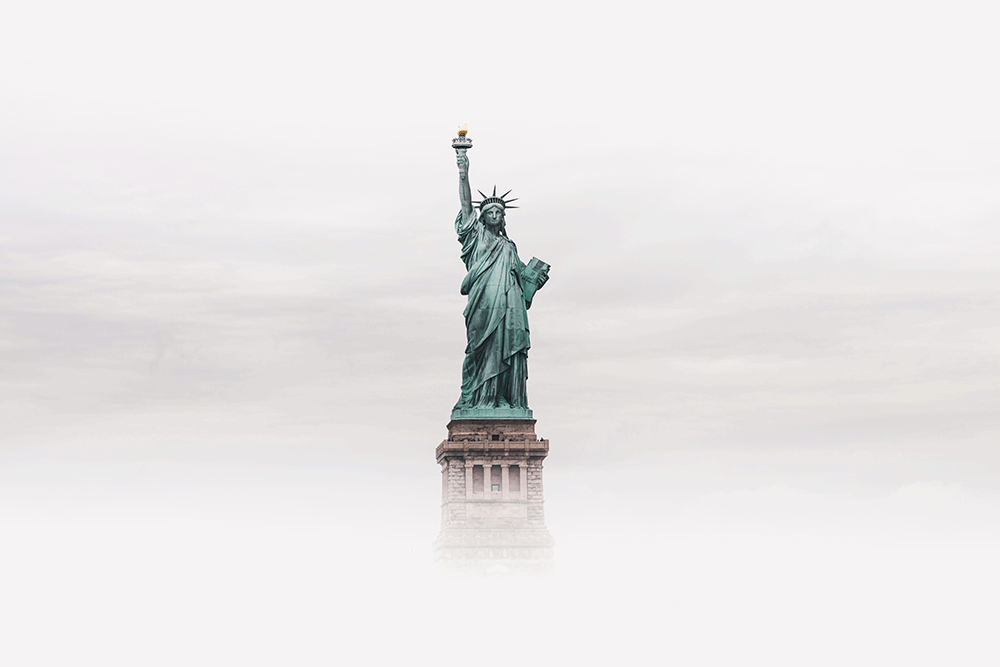COVID 19 pandemic has changed our lives, our ability to move, travel, socialize. I feel fortunate that, during this challenging time, I have uninterruptedly managed my law practice and stayed physically active. Living in an open residential and coastal area has given me the opportunity of going out for long runs, without exposing me or others to coronavirus, while in several parts of the world, people were confined to their homes. In my profession, I represent clients from around the world, in business and immigration matters, whether they are small investors expanding their business to America or multinational companies who benefit from global workforce mobility. Many of my clients have been affected in different ways by this pandemic and the presidential proclamations suspending entry of foreign individuals and restricting their global workforce mobility. The Department of State has announced that certain travelers from the Schengen Area can apply for a National Interest Exception (“NIE”) allowing entry to the U.S. of certain applicants that meet the NIE guidelines.
Background
Since January 2020, a number of presidential proclamations have been issued that suspend the entry of aliens who, within the prior 14 days, have been in mainland China, Iran, the European Schengen Area, Ireland, or the United Kingdom. On June 22, 2020, President Trump issued a proclamation stating among other things that “the present admission of workers within several non-immigrant visa categories also poses a risk of displacing and disadvantaging United States workers during the current recovery.” This is an attack on the United States innovation and ability to benefit from attracting talents, investors, and capitals worldwide. Particularly, the H-1B, L-1A, L-1B and E-2 visa programs are critical programs of multinational employment and investment growth in an increasingly global marketplace. Together, the proclamations extend the immigrant visa ban and bar the entry of foreign citizens requiring work visas in the H-1B, H-2B, L-1, E-2 and many J-1 categories along with their dependents until the end of 2020.
The Need for Global Mobility
There are several US based companies run by foreign executives, managers, talented and skilled employees in L-1A, L-1B, H-1B and E-2 visa. These visas are an excellent mechanism to transfer or bring to a U.S. affiliate, subsidiary, parent or branch of any size, foreign executives, managers, and employees in specialized positions that meet the nowadays, arbitrary visa requirements. These U.S. based companies are funded with substantial foreign investments in the U.S. and offer employment opportunities to U.S. workers. These U.S. companies are not only making every effort to survive in this challenging time, but they are also facing a bigger obstacle as a result of the presidential proclamations suspending the entry to the U.S. of aliens who posses a risk to the U.S. labor market.
The L Visa: L-1A and L-1B
L-1 visa is a non-immigrant visa which allows foreign companies to transfer employees under two types of L-1 visas. The L-1A visa allows the transfer of executives and managers, including business owners, for up to seven years. The L-1B visa for specialized knowledge employees allows entry for up to five years. Both visas are available under a different set of rules to new or existing U.S. companies. Among other requirements, the qualified candidates must have worked for a subsidiary, parent, affiliate or branch office of the U.S. company outside of the U.S. for at least one year out of the last three years.
The E-2 Visa
The E-2 visa allows a foreign person who is a national of a treaty country to invest in the U.S. by purchasing an existing business of starting a new business. This visa also allows a U.S. based business to bring foreign executives or managers to the U.S. Whether the E-2 Visa applicant is an employee or the investor, in both cases the applicant must be of the same nationality of the U.S. company. The E-2 foreign employee can be a manager/supervisor or a worker with special skills making him or her essential to the business.
H-1B Visa
The H-1B visa is temporary non-immigrant visa category that allows U.S. employers, seeking highly skilled foreign employees in specialty occupations -particularly in the Science, Technology, Engineering, and Math fields (STEM)-, to submit petitions for foreign skilled employees. Each year there is a statutory cap of 65,000 visas, with 20,000 additional visas for foreign professionals holding a Master or Doctorate Degree from a U.S. institution. The allocation of H-1B visas and application process is controlled by U.S. Citizenship and Immigration Services (USCIS). These foreign skilled workers play a critical need in the U.S. labor market.
The Travel Ban
Since COVID 19 started affecting the United States and countries worldwide, several measurements have been taken in the United States. The United States, as well as many countries, closed their borders, making impossible to travel from or to the U.S. American consulates around the world closed their doors and cancelled appointments. Individuals with approved visas have been unable to make appointments at the U.S. consulates to get their visa stamps. In other cases, visa holders, who were temporarily traveling abroad, have been unable to return to the U.S. due the presidential proclamations. A third group of individuals who were visiting the U.S. when the borders were closed are expecting or wanting to change visa status.
U.S. Consulates and Embassies: Resume of Visa Services
As of July 20, 2020, many US Embassies and Consulates resumed visa services with increasing waiting times due to backlogs. Individuals with approved visas should check the US Embassy and Consulate in their country of origin for latest visa appointment.
The National Interest Exception and Expansion
Among other visa types, H-1B, L-1A, L-1B, E-2 visa holders, who, at the time of presidential proclamation were outside of the U.S. and reside in the Schengen Area, are subject to presidential proclamation 10052. This proclamation extends presidential proclamation 10014, which suspended the entry to the United States of certain immigrant visa applicants, through December 31, 2020. However, as of August 12, 2020 and the August 25, 2020 expansion, certain immigrants may be able to apply for a national interest exception (NIE) if they fall under the exceptions listed. The new NIE expansion allows consular officers to waive the in-person interview requirement for individuals applying for a non-immigrant visa in the same classification.
Exceptions: L-1A Applicants
An L-1A visa applicant may be eligible for an NIE if he or she is seeking to resume ongoing employment in the United States in the same position with the same employer and visa classification.
Another exception is if an applicant for an L-1A visa (new-office L-1A is excluded) may be eligible for an NIE if he or she is a senior-level executive or manager and meets two of the following criteria:
- The applicant will be a senior-level executive or manager.
- The applicant has spent multiple years with the company overseas, indicating a substantial knowledge and expertise within the organization that can only be replicated by a new employee within the company following extensive training that would cause the employer financial hardship.
- The applicant will fill a critical business need for the employer meeting a critical infrastructure need in a designated industry (described above).
Exceptions: L-1B Applicants
An L-2A applicant may also be eligible for an NIE if the applicant is seeking to resume ongoing employment in the United States in the same position with the same employer and visa classification. Forcing employers to replace employees in this situation may cause undue financial hardship.
Another exception is if the applicant is a technical expert or specialist meeting a critical infrastructure need. The consular officer may determine that an L-1B applicant falls into this category if all three of the following indicators are present:
- The applicant’s proposed job duties and specialized knowledge indicate the individual will provide significant and unique contributions to the petitioning company.
- The applicant’s specialized knowledge is specifically related to a critical infrastructure need; AND
- The applicant has spent multiple years with the company overseas, indicating a substantial knowledge and expertise within the organization that can only be replicated by a new employee within the company following extensive training that would cause the employer financial hardship.
Exceptions: E-2 Applicants
Another group of visa holder that may be exempt are foreign nationals involved in U.S. investment or trade activities of substantial economic impact, including foreign nationals under E-1, Treaty Traders and E-2, Treaty Investors non-immigrant classifications.
Process for Obtaining National Interest Exception
Applicants who appear to be subject to entry restrictions under the presidential proclamations and also appear to be eligible for an exception under the State Department guidelines, must contact the relevant U.S. consulate where they intend to apply and follow the U.S. consulate’s procedures for requesting an emergency appointment. The applicant must state the reasons why he or she is eligible for an exception and appear to an interview, unless the interview is waived under the August 25, 2020, U.S. State Department guidelines. Previously, only those applicants whose non-immigrant visa expired within 12 months were eligible for an interview waiver. The Secretary has temporarily extended the expiration period to 24 months.
Foreign Individuals Present in the U.S. Seeking a Change of Visa Status
Foreign individuals who are in the United States, are unable to travel back to their countries, have maintained lawful status, and meet the pertinent visa requirements, can apply for a change of visa with USCIS, to L-1A, L-1B, or E-2 visa, or extend their visas in certain situations.
Tondini Law Can Help
Companies continue to be impacted by COVID-19 Pandemic. Tondini Law is here effectively assisting our clients and addressing the short- and long-term impact on their business. Our Firm provides effective strategies and planning on the wide range of immigration and business challenges that companies face conducting business while dealing with the impact of the coronavirus.
We are also representing clients who are subject to the entry ban and requesting NIE on their behalf. Please contact our office for assistance.
The NIE is granted by U.S. Consulates only. Applicants without a granted NIE are advised not to appear at the airports, hoping that they will be granted a waiver. It is being reported that the U.S. Consulates daily issue and update a list of applicants’ names with NIE granted. If the applicant’s name is on the list, he or she will be allowed to board the plane.

